MOSAiC Expedition: Sign Up for Weekly Expedition Engagement Activities!
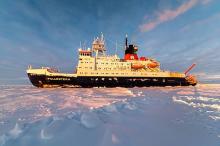
On September 20, 2019 one of the largest research expeditions in the Central Arctic ever conducted will begin when the Polarstern icebreaker sets out to freeze itself in Arctic sea ice for a year. Keep track of the expedition and what’s going on in the Arctic through MOSAiC's weekly news – MOSAiC Monday – great for K-12, undergraduate, and graduate classroom use. Engage your students with real-time updates, behind the scenes access to the MOSAiC expedition, and short, simple activities. Sign up to receive MOSAiC Monday in your inbox every Monday during the expedition. PolarTREC educator, Katie Gavenus and researcher Anne Gold will be on the first leg of this expedition. You can follow their journey through the expedition page on PolarTREC and subscribe to their journals.
PolarTREC Informational Webinar
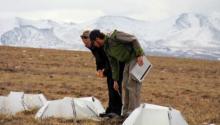
An informational webinar for the 2020-21 PolarTREC seasons will be held on Wednesday, 11 September 2019 at 1:00pm AKDT (2pm PDT, 3pm MDT, 4pm CDT, 5pm EDT) for teachers, informal science educators and researchers.
If you are unable to attend the webinar, we will post an archive online soon after the event. Anyone who has registered for the event in advance will receive instructions on how to view the archive. You can also download a PDF of the presentation at the same location.
If you want more information before this year's event, you can watch the archived webinar from last year. The video and pdf archives are posted here.
Once you have watched last year's archive or attended this year's informational webinar and still have questions, feel free to contact PolarTREC staff at info [at] polartrec.org.
2019 August Sea Ice Outlook Report Available
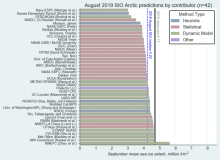
The 2019 August Sea Ice Outlook (SIO) report is now available online. The Sea Ice Outlook, an effort managed by the Sea Ice Prediction Network–Phase 2 (SIPN2), provides an open process for those interested in Arctic sea ice to share ideas. The monthly reports contain a variety of perspectives—from advanced numerical models to qualitative perspectives from citizen scientists. The Sea Ice Outlook provides an open process for those interested in Arctic sea ice to share predictions and ideas; the Outlook is not an operational forecast.
A record number of 42 Pan-Arctic outlook contributions were received for the August report. Of those contributions 7 also included pan-Antarctic predictions, 11 included regional predictions for Alaskan waters, and 5 were for the Hudson Bay region.
For the August report the pan-Arctic median value for September 2019 sea-ice extent is 4.22 million square kilometers and with quartile values of 4.0 and 4.4 million square kilometers.Although pan-Arctic sea-ice extent was tracking very close to the record minimum of 2012 from mid-June through mid-August, the rate of melt slowed down in late August. A record minimum extent is not expected for 2019, unless late summer storm activity consolidates ice extent.
SIPN2 Webinar Registration: An Overview of European Union-Funded Project APPLICATE

The Sea Ice Prediction Network – Phase 2 (SIPN2) invites registration for an open webinar entitled "An Overview of European Union-Funded Project APPLICATE" featuring Pablo Ortega, Earth Science Department, Barcelona Supercomputing Center. This webinar will provide an overview on the EU-Funded H2020 project APPLICATE, whose main goal is to advance our capability to predict the weather and climate in the Arctic and beyond. It will present a few examples on the seasonal prediction activities carried out within the project. These include an analysis on how the different forecast errors are developed in the EC-Earth system, a multi-model comparison of predictive skill in all the seasonal forecast systems participating to the Consortium, results from empirical statistical models used for benchmarking, and experiments exploring the added-value of increasing both the atmospheric and oceanic resolution on seasonal prediction. This event will be held on Tuesday, 17 September 2019 from 8:00 a.m. to 9:00 a.m. AKDT.
Arctic Futures 2050 Conference Archive Available

The Arctic Futures 2050 conference was streamed live on 4-6 September from Washington, D.C. The conference session videos are now available for viewing. Please check the conference program to view session videos.
Arctic Futures 2050 Conference Live Stream
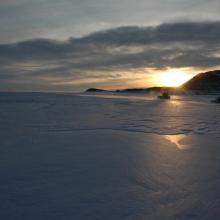
The Arctic Futures 2050 conference will be streamed live on 4-6 September from Washington, D.C. The conference will begin each day starting at 8:30am ET. Please check the conference program for the latest information on speaker and session times. No registration, fee, or download will be required to view the stream.
Arctic Futures 2050 Conference Taking Place 4-6 September in Washington, D.C.
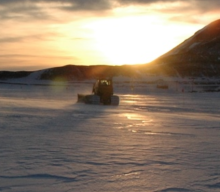
The Study of Environmental Arctic Change (SEARCH) Arctic Futures 2050 conference will be taking place 4-6 September at the National Academies of Sciences building in Washington, D.C.. Check out the latest updates to the program, review poster abstracts and speaker bios, or complete your conference registration today by visiting the conference website.
Arctic Futures 2050 Conference
Join PolarTREC for Three Upcoming Live Events in August!
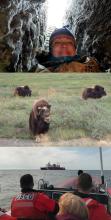
On Wednesday, 14 August at 7:00am AKDT (11:00am EDT), please join us for a live event from Utqiagvik, Alaska with educator Monica Nunez and researcher Craig Tweedie. They will discuss the many projects that are ongoing across the Barrow Peninsula. Collectively, these projects are helping to advance our knowledge of terrestrial, aquatic, coastal and marine ecosystem structure and function and how these systems are responding to arctic change. You can learn more about the ongoing research here.
On Thursday 15 August at 10:20am AKDT (2:20pm EDT) join educator Kate Steeper and researcher Donie Bret-Harte for a presentation from Toolik Field Station, Alaska on Shrubs, Snow, and Nitrogen in the Arctic. Read more about what Kate is learning here.
On Tuesday, 20 August at 1:00pm AKDT (5:00pm EDT), please join us for a live event with educator Piper Bartlett-Browne from a ship in the Chukchi Sea. Piper will be calling in with researcher Lee Cooper to discuss the sampling and research that have been carried out during their voyage. You can learn more about Piper's expedition here.
These events are hosted through the PolarTREC PolarConnect program. Participants will have a chance the learn from the scientists, ask questions, and chat with others during the presentation. Both events are free and open to the public. Please join us!
Witness Community Highlights

The July 2019 issue of Witness Community Highlights is now available online. This issue includes two articles: “Working for Food Security in Interior Alaska,” which summarizes a case study of how stake-holders in northern cities ensure a high level of food security; and “Tracking Ticks in Alaska: Understanding how an Invasive Species may Impact the Health of Humans and Animals in the Arctic” discusses recent work to understand if invasive ticks are being imported, and surviving, in the Arctic.
Call for Sea Ice Outlook Contributions
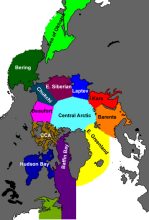
The Sea Ice Prediction Network–Phase 2 (SIPN2) announces the call for contributions for the 2019 Sea Ice Outlook August report (based on May, June, and July data). The Sea Ice Outlook (SIO) provides an open process for those interested in Arctic sea ice to share ideas.
Pan-Arctic and Regional Sea Ice Extent Outlooks and any additional figures and gridded fields will be accepted for the 2019 August Outlook. We particularly encourage submissions for the Alaska region (i.e., Bering, Chukchi, and Beaufort seas). For those interested, submissions for Hudson Bay are also accepted. Submissions that include spatial forecast maps are encouraged.
The 2019 SIO will also accept pan-Antarctic sea ice extent of the September monthly mean. Informal sea ice observations and other parameters not included in the regular monthly reports are also invited. All participants whose methods provide information at the local scale to are encouraged to provide full spatial fields via the SIPN Data Portal.
Submission deadline: 6:00 p.m. (AKDT) Wednesday, 14 August 2019 (firm).
Detailed Guidelines for Contributors
2019 July Sea Ice Outlook Report Available
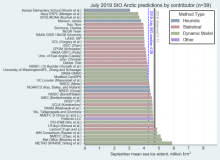
The 2019 July Sea Ice Outlook (SIO) report is now available online. The Sea Ice Outlook, an effort managed by the Sea Ice Prediction Network–Phase 2 (SIPN2), provides an open process for those interested in Arctic sea ice to share ideas. The monthly reports contain a variety of perspectives—from advanced numerical models to qualitative perspectives from citizen scientists.
For the 2019 July report, 39 contributions were received that included pan-Arctic predictions. Of those contributions 8 also included pan-Antarctic predictions, 10 included regional predictions for Alaskan waters, and 6 were for the Hudson Bay region.
For the pan-Arctic, the median July Outlook value for September 2019 sea-ice extent is 4.28 million square kilometers with quartiles of 4.0 to 4.6 million square kilometers. As of the publication of this report, total Arctic extent was tracking below levels recorded in 2012, the year that ended up with the lowest September extent on record.
The Sea Ice Outlook provides an open process for those interested in Arctic sea ice to share predictions and ideas; the Outlook is not an operational forecast.
SEARCH Researcher Warns Congress of Unprecedented Ice Loss
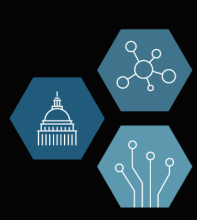
On 11 July 2019, Dr. Twila Moon of the SEARCH Land Ice Action Team took part in a hearing of the House Science, Space, and Technology Committee on glacial and ice sheet melt.
Arctic Futures 2050 Early Bird Rates Extended Through 17 July
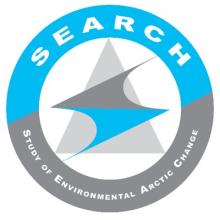
Arctic Futures 2050 is an international conference taking place 4-6 September in Washington, D.C. designed to facilitate dialogue and enhance collaboration between Arctic scientists from many disciplines, diverse Indigenous knowledge holders, and policy makers from all levels of government. Early bird registration rates for the event have been extended to 17 July 2019.
Call for Sea Ice Outlook Contributions
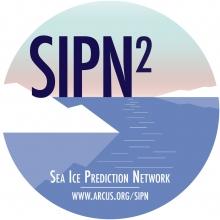
The Sea Ice Prediction Network–Phase 2 (SIPN2) announces the call for contributions for the 2019 Sea Ice Outlook July report (based on May and June data). The Sea Ice Outlook (SIO) provides an open process for those interested in Arctic sea ice to share ideas.
Pan-Arctic and Regional Sea Ice Extent Outlooks and any additional figures and gridded fields will be accepted for the 2019 July Outlook. We particularly encourage submissions for the Alaska region (i.e., Bering, Chukchi, and Beaufort seas). For those interested, submissions for Hudson Bay are also accepted. Submissions that include spatial forecast maps are encouraged.
The 2019 SIO will also accept pan-Antarctic sea ice extent of the September monthly mean. Informal sea ice observations and other parameters not included in the regular monthly reports are also invited. All participants whose methods provide information at the local scale to are encouraged to provide full spatial fields via the SIPN Data Portal.
Submission deadline: 6:00 p.m. (AKDT) Friday, 12 July 2019 (firm).
Detailed Guidelines for Contributors
PolarTREC Live Event from Siberia, Russia
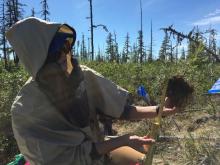
Join PolarTREC for an upcoming live event with educator Amanda Ruland and the team studying Fire and Carbon in Siberian Forests on Monday, 8 July 2019 at 12 PM AKDT (1 PM PDT, 2 PM MDT, 3 PM CDT, 4 PM EDT). This event will be broadcast live from the Northeastern Science Station in Cherskii, Russia. To learn more about the science and what Amanda is learning, visit her expedition page here. Register today for this free 1-hour event!
Interdisciplinary/Transdisciplinary Networking Project Survey
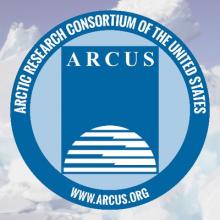
ARCUS is conducting a brief survey to inform a new effort focused on helping individuals interested in interdisciplinary Arctic research opportunities connect more easily. By taking part, you will help ensure that the project is well-aligned with user needs. The survey should take approximately 10-15 minutes to complete and will be open until 31 July 2019. We invite you to share the survey with any colleagues who might want to provide input or become involved.
June Issue of Witness Community Highlights Now Available

The June 2019 issue of Witness Community Highlights is now available online. This issue includes an article, “Re-establishing an Arctic Research Station at Teshekpuk Lake, Alaska” discussing the re-establishment of a long-term observation site in northern Alaska that supports research focused on landscape and ecosystem changes in the Arctic.
2019 June Sea Ice Outlook Report Available
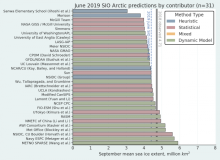
The 2019 June Sea Ice Outlook (SIO) report is now available online. The Sea Ice Outlook, an effort managed by the Sea Ice Prediction Network–Phase 2 (SIPN2), provides an open process for those interested in Arctic sea ice to share ideas. The monthly reports contain a variety of perspectives—from advanced numerical models to qualitative perspectives from citizen scientists.
For the 2019 June report, 31 contributions were received that included pan-Arctic predictions, of those contributions six (6) also included pan-Antarctic predictions, and nine (9) included predictions for Alaskan waters. This year, for the first time, there are also seven (7) predictions for the Hudson Bay region.
For the pan-Arctic, the median June Outlook value for September 2019 sea-ice extent is 4.40 million square kilometers with quartiles of 4.2 and 4.8 million square kilometers (The individual outlooks are based on statistical, dynamical models, and heuristic methods. Projected extents are slightly lower compared with 2018 June outlook, but is about the same as in the 2017 June outlook (4.43 million square kilometers). he Sea Ice Outlook provides an open process for those interested in Arctic sea ice to share predictions and ideas; the Outlook is not an operational forecast.
PolarTREC Live Events with Educators Ale Martinez and David Walker
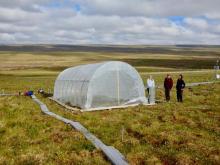
Please join us next week for our first two live PolarConnect Events (webinars) – both broadcast from Toolik Field Station in Alaska.
Our first event will be on Tuesday, 25 June at 10 am AKDT with educator Ale Martinez and the Phenology and Vegetation in the Warming Arctic 2019 Team. Ale's team is studying environmental variability and increased temperature on tundra plant phenology, growth, species composition and ecosystem function. You can read more about her experience here.
Our second event will be with educator David Walker and the team studying Carbon in the Arctic. It will be held on Wednesday, 26 June 2019 at 4 pm AKDT. During this event, the team will share their recent research on how microbes and sunlight interact in the Arctic and where thawing permafrost soils release large amounts of carbon from land to water. You can read more about his experience and the research here. Register today!
Bridging Science, Art, and Community in the New Arctic
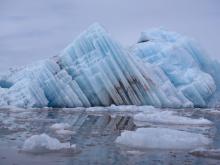
The “Bridging Science, Art, and Community in the New Arctic” conference will be held 23-25 September 2019 in Charlottesville, VA. This event will feature an interdisciplinary symposium and workshops, a musical performance and art exhibition, and poster sessions. The UVA Environmental Resilience Institute’s Arctic CoLab is organizing the event, with assistance from ARCUS. Funding is provided by NSF, with additional support from UVA’s Institute for Humanities and Global Cultures, and Center for Global Inquiry and Innovation. Registration is free.
Witness the Arctic
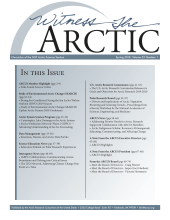
The Spring 2019 issue of Witness the Arctic is now published online. This issue includes articles about Bering Sea conditions during the 2019 spring season, an ongoing study of catastrophic lake drainage in the Arctic system, a study of Arctic data portals, and observations from Arctic Indigenous scholar, Rosemary Ahtuangaruak; news from the Local Environmental Observer Network, the Polar Research Board, IARPC Collaborations, the SEARCH program, the U.S. Arctic Research Commission, the Sea Ice Prediction Network–Phase 2, and the ARCUS membership program; comments from the ARCUS Executive Director’s office, board members, and Board President Audrey Taylor; and a highlight of ARCUS member institution, the Sitka Sound Science Center.
Call for Contributions to the 2019 Sea Ice Outlook June Report
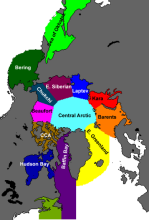
The Sea Ice Prediction Network–Phase 2 (SIPN2) announces the call for contributions for the 2019 Sea Ice Outlook June report (based on May data). The Sea Ice Outlook (SIO) provides an open process for those interested in Arctic sea ice to share ideas.
Pan-Arctic and Regional Sea Ice Extent Outlooks and any additional figures and gridded fields will be accepted for the 2019 June Outlook. We particularly encourage submissions for the Alaska region (i.e., Bering, Chukchi, and Beaufort seas). For those interested, submissions for Hudson Bay are also accepted. Submissions that include spatial forecast maps are encouraged.
The 2019 SIO will also accept pan-Antarctic sea ice extent of the September monthly mean. Informal sea ice observations and other parameters not included in the regular monthly reports are also invited. All participants whose methods provide information at the local scale to are encouraged to provide full spatial fields via the SIPN Data Portal.
Submission deadline: 6:00 p.m. (AKDT) Wednesday, 12 June 2019 (firm).
Detailed Guidelines for Contributors
SEARCH Scientists Warn of Increased Warming from Permafrost Thaw
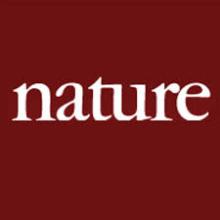
In a new commentary in Nature, SEARCH's Permafrost Action Team indicates a possible doubling of warming from carbon released by thawing permafrost. "An important gap in our understanding of the consequences of a warming Arctic has been how much carbon will thawing permafrost release to the atmosphere and how quickly? This report advances our understanding of the processes, further refines the estimates, and clearly points to the next steps in research," notes Brendan Kelly, Executive Director of SEARCH.
Extended Deadlines Announced for Arctic Futures 2050 Conference
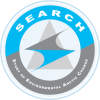
The Arctic Futures 2050 Conference Organizing Committee has announced extended deadlines for the following conference dates:
- Poster Abstracts Deadline: 20 May 2019
- Travel Award Applications Deadline: 20 May 2019
- Poster Decisions and Travel Award Winners Announced: 17 June 2019
- Early-bird Registration Rates End: 10 July 2019
Witness Community Highlights

The April 2019 issue of Witness Community Highlights is now available online. This issue includes three articles: “Comparative Study Explores Northern Dene Astronomical Knowledge,” an investigation of how Northern Dene peoples perceive, conceptualize, and integrate the sky and its contents into systems of knowledge and worldview; “A Remarkable Response of Ice-Rich Permafrost Terrain to Summer Warming,” highlighting the dramatic impact of thawing permafrost on Arctic environments; and “A New and Exciting Age in Polar Science,” an essay by Kelly K. Falkner, Director of the Office of Polar Programs, National Science Foundation.
